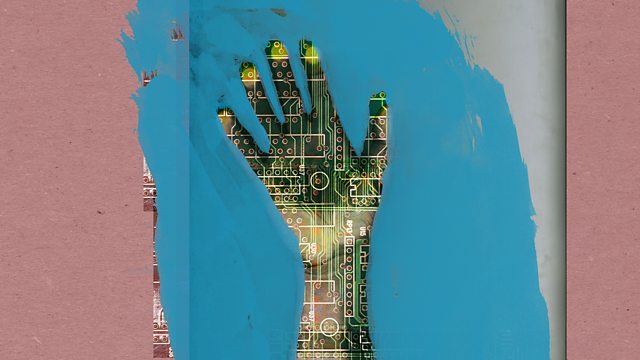Implant
Imagine surgically implanting a smart device to sense, monitor and respond to a health condition. Aleks Krotoski asks how far we can trust digital technology inside our bodies.
Imagine being able to fix a malfunction in your body with a programmable smart device implanted deep inside your body… The device senses, monitors and responds to your condition in real time and provides updates and analysis on your phone.
In the past few years, we’ve seen a boom in health apps and wearable smart devices offering personalised and real time analysis of our daily lives. It’s one thing putting on a wearable smart device - but what does it take to trust one implanted inside your body?
From continuous glucose monitoring for diabetics to invasive surgery implanting electrodes on the spinal cord or in the brain, Aleks Krotoski asks how a closer relationship with implanted health technology can affect our trust; from our faith in device functionality, security, and longevity, to our trust of ourselves, be it our agency, identity and intuition to read our own bodies.
Produced by Jac Phillimore
Last on
More episodes
Previous
Karola Kreitmair

Dr Karola Kreitmair is an Assistant Professor in the dept of medical history and bioethics at the University of Wisconsin. Within neuroethics, she conducts both academic studies and teaching and clinical work, advising as a bioethicist in a hospital. Looking at deep-brain stimulation, personal neurostimulation devices, wearable technology, brain-computer interfaces, mental health apps, and virtual and augmented reality, she is particularly interested in the complexities of technology and patient autonomy and authenticity.
Christopher Dawson

Dr. Chris Dawson is a mechanical engineer who leads the biosensing team at TTP. The team works with clients to leverage advances in biosensing technology to develop products that support patients in managing and treating a wide range of diseases.
They develop sensing solutions from short-term minimally invasive to long-term fully implantable, all with challenging requirements for biocompatibility, hermeticity, form-factor, wireless power & comms, and integrate a broad range of sensing modalities from electrical and electrochemical, through to ultrasonic and optical.
Cat Irving

Cat Irving is the Human Remains Conservator for Surgeons’ Hall Museum which is the museum of the Royal College of Surgeons of Edinburgh, one of the oldest medical institutions in the world. She has cared for anatomical and pathological museum collections there for over twenty years. Cat is a licensed anatomist, and gives regular talks on anatomy and medical history, as well as writing the blog Wandering Bones. Recently she has carried out conservation work on the skeleton of serial killer William Burke prior to his display in National Museum of Scotland.
Rochelle Featherstone

Nick Vallotton
Nick Vallotton was diagnosed with Parkinson’s Disease at the age of 38 and has managed his condition for the past 11 years. He works full time as a Senior Research Nurse at Gloucester Royal hospital. In 2021, he underwent deep brain stimulation surgery in the hope of improving control over his speech and limbs; following surgery his overall function was much improved.
Broadcast
- Mon 7 Nov 2022 16:30�������� Radio 4
Podcast
-
![]()
The Digital Human
Aleks Krotoski explores the digital world


